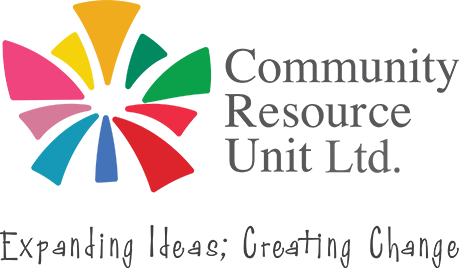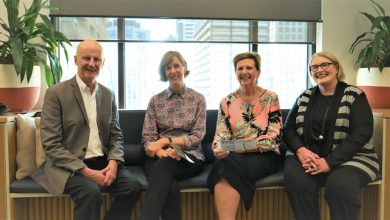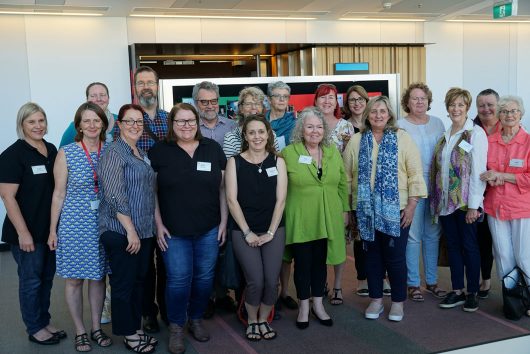
Partnerships
Working together
The small CRU team based in Brisbane is a connecting point for many people across Queensland who believe that people with disability should belong to and participate in community. We know that partnerships are important if we are to achieve our vision of full and meaningful lives for people living with disability.
CRU has engaged in partnerships both locally, nationally and internationally. We are committed to ensuring our partnerships reflect and progress the mission and work of CRU. Examples of this include:
- Contributing and sharing our resources
- Developing and facilitating niche training for organisations and families
- Working with governments, councils and organisations to manage change
- Collaborating to develop multimedia resources
- Investing in strategic leadership development
- Linking people to combine efforts in creating meaningful change.
Working Partnerships
National Alliance of Capacity Building Organisations
CRU is a member of the National Alliance of Capacity Building Organisations (NACBO), a collection of organisations committed to working together to deliver capacity building projects around Australia.
My Home, My Way Project
My Home, My Way will harness a wide range of resources about ‘home’ into a single website. This website will house existing resources, as well as new videos, podcasts and booklets that will be created during the project. A workshop on ‘Home’ will also be delivered by CRU in Queensland.
Making Individualised Living Options real Project
This work will augment the overarching My Home, My Way project, by providing a step-by-step technical guide for people and families wishing to actively pursue an Individualised Living Option (ILO). It will also give access to mentor/coaching support to navigate the technical steps involved in making an independent living option a reality.
Self-Managed Workforce Innovation project
The Self-Managed Workforce Innovation website explores how self-managed arrangements deliver good outcomes for the person living with disability and the workers involved in their supports. A series of interviews with support workers, and those that employ them in a self-managed arrangement, have been shared on this website.
These will help people living with disability make informed choices about which support model can best deliver the supports they seek and to attract and retain support workers.
19 Stories of Social Inclusion
19 Stories of Social Inclusion was a collaboration by Belonging Matters, the Melbourne Social Equity Institute (Melbourne University) and members of NACBO. The project invited 19 Australians with disability (and their networks) to share their lives of connection, belonging and contribution.
The number 19 was chosen as Article 19 of the United Nations Convention on the Rights of Persons with Disabilities refers to the right to live independently and participate in the community.
The Anne Cross Leadership Initiative
This initiative was established in 2017 to honour the contribution of Anne Cross to Uniting Care Queensland during her years as the Chief Executive officer. Anne was the founding Director of CRU and held that position from 1988 to 2000.
This partnership between Uniting Care and CRU aims to contribute to the development of strong, principled leadership amongst people with disability and families throughout Queensland in order to contribute to better lives for people with disability.
As part of this initiative CRU created the CRUcial Conversations podcast series, which explored grassroots-lead change in Queensland's disability community.
Student Vocational Placements – Developing a Practice Framework
In phase one of this project in 2021, CRU explored with the help of focus groups, what it would take for students undertaking accredited training to have their assessment and vocational placements led by people with lived experience of disability and conducted in the homes of people with disability.
A small range of models were co-designed with a focus group of people with disability and family members who self-manage their supports. Our report to Workability recommended that a Placement Agency be developed to assist with all stages of facilitating vocational placements in these settings. You can download the report to WorkAbility here (PDF).
Two fact sheets were also developed:
- Fact Sheet: Tips on supporting a person with disability in their own home while on vocational placement (PDF)
- Fact Sheet: Workplace supervision when you’re the person receiving support (PDF)
CRU’s project was a targeted initiative that complemented the learnings of an action research project led by TAFE Queensland that also explored vocational placements with a focus on human service organisations.
In 2022, we will trial the development of a Placement Agency to demonstrate these recommendations. Up to 12 people with lived experience of disability will be engaged as workplace supervisors and/or trainers and assessors, and up to 10 students enrolled in Certificate III Individual Support will be supported to complete placement hours in the homes of people with disability.
T his initiative is part of the NDIS Training and Skills Support Strategy (NTSSS), delivered on behalf of WorkAblity Qld and is proudly supported and funded by the Queensland Government.
his initiative is part of the NDIS Training and Skills Support Strategy (NTSSS), delivered on behalf of WorkAblity Qld and is proudly supported and funded by the Queensland Government.
CRU particularly supports two voluntary and unfunded organisations. They are:
Values in Action Association
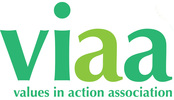
Values in Action Association (ViAA) is an independent Social Role Valorisation (SRV) education initiative that runs workshops and events in South East Queensland.
ViAA works with individuals, families, human services, community organisers and activists to assist people understand Social Role Valorisation (SRV) and to explore how they might use the lessons of SRV to achieve good lives for devalued people.
CRU is the Australian distributor of Valor Press, the publisher of the SRV texts. We sell 9 books on SRV and PASSING through our online store and continues to promote ViAA events.
Queensland Collective for Inclusive Education (QCIE)
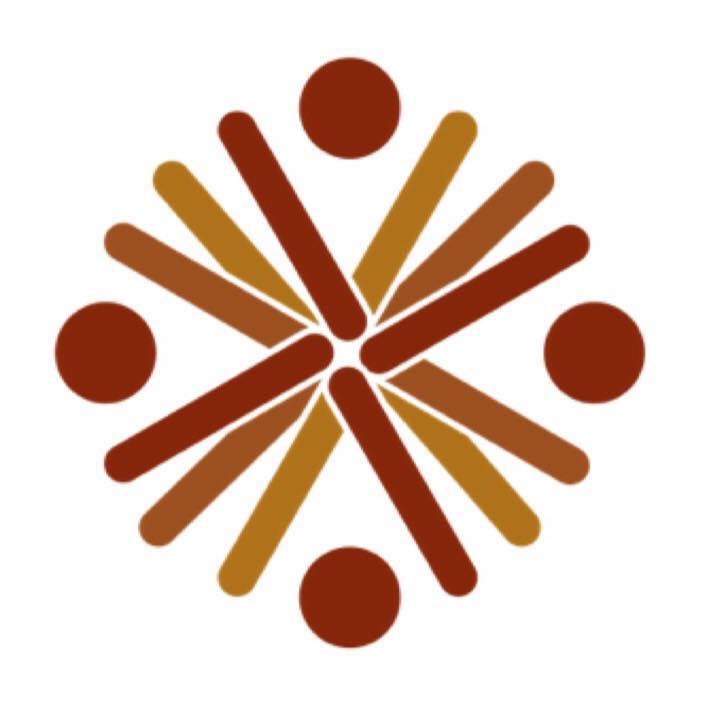
Queensland Collective for Inclusive Education (QCIE) believe that local, regular school needs to be the default option for all student with a disability and recognise that this will only be achieved through changes to policy, process and the resourcing of schools and their community.
This Queensland Collective, which started in 2017, is a statewide group of families who promote inclusive lives for their children with disability and work together to make inclusive schools a reality for all.
CRU has contributed to this parent voice giving assistance with planning facilitation and resourcing families to tell their story. CRU has also collaborated with QCIE in running and promoting events.
Examples of Past Alliances
In its 30 years history CRU has partnered with many groups, organisations and committed individuals to create change. In recent years this has included:
- Getting on the Grid
The getting on the grid project is a collaboration between Queenslanders with Disability Network (QDN), the Community Living Association (CLA), Micah Projects and CRU. It involved working with people with disability in Queensland who are known to be at risk of missing out on accessing the National Disability Insurance Scheme (NDIS).
- Uniting Care Queensland
CRU has worked with Uniting Care Queensland (formerly known as Uniting Care Community) to develop and deliver values based training to their staff. This has involved resourcing staff at a variety of organisational levels.
- Participant Readiness CALD work: Mamre Association, QDN and CRU
CRU, Queenslander's with Disability Network (QDN) and Mamre advocated for a funded targeted strategy as part of the Queensland Government's NDIS Participant Readiness Strategy. This included the funding of Amparo Advocacy to engage in work to prepare members of the CALD community for the NDIS.
- Griffith University NDIS Symposia series This series of nine symposia organised by Griffith University explored key topics that needed to be discussed to ensure everyone could have equitable access to the NDIS. Topics included employment, home, CALD communities, children with complex health needs and people who are hard to reach.
